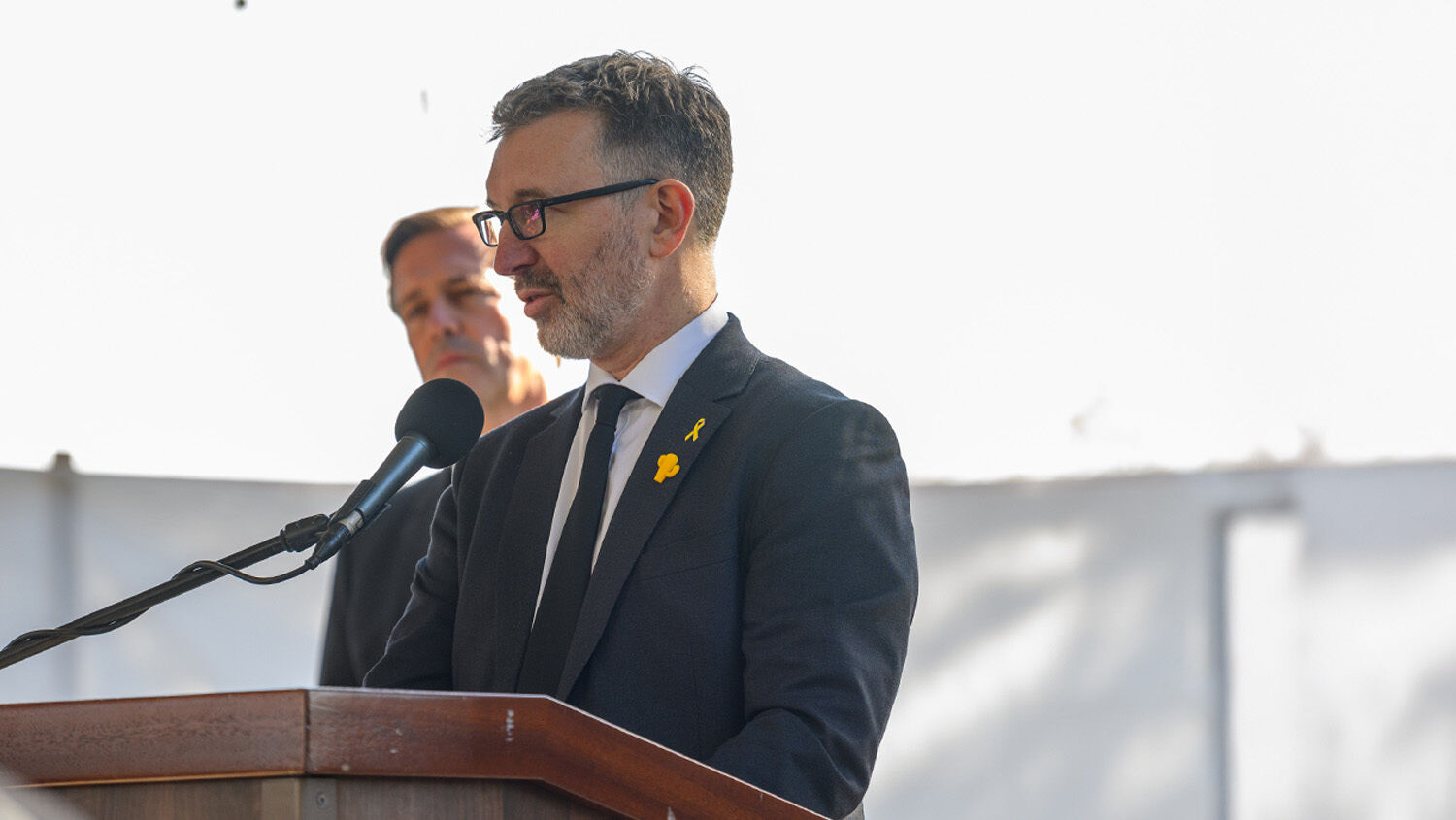
Snapping Back: The Obama-Iran Nuclear Deal
The United Kingdom, France and Germany are ready to impose “snapback sanctions” on Iran if it doesn’t agree to a new nuclear deal, Britain announced this week. Speaking at the Institute for National Security Studies annual conference in Tel Aviv, Israel, on February 25, British Ambassador to Israel Simon Walters said Iran was in “total breach” of the Joint Comprehensive Plan of Action (jcpoa) by enriching uranium beyond civilian levels.
The jcpoa is the deal former United States President Barack Obama made with Iran, along with the United Kingdom, France, Germany, Russia and China as guarantors. The U.S. withdrew from the deal in 2017 during President Donald Trump’s first term. Trump said that Iran had not complied with the terms it had agreed to, and that even under the deal’s terms it had too much leeway to secretly build nuclear weapons.
Iran responded by ramping up its nuclear enrichment program. The other five parties remain guarantors of the deal. If they deem Iran noncompliant, they can inform the United Nations. This would bring back the many international sanctions on Iran that tightly restricted its access to the global economy prior to Obama’s jcpoa. Russia and China are close to Iran and have an interest in protecting it, but that’s not the case with the “E3” nations: the UK, France and Germany.
The jcpoa expires in October. But the E3’s ultimatum has a due date before that.
“We’re not naive,” Walters said. “We know they will want to draw [negotiations] out. We have told them very clearly that there is a deadline for doing a deal, and that deadline is in the middle of the year, the end of June.”
Why Now?
Europe was among the biggest proponents of the nuclear deal. The jcpoa meant European corporations could do business in Iran without sanctions. But Iran has shown itself to be an unreliable partner. It has sponsored Russia’s war in Ukraine through arms shipments, advisers assisting Russia on the ground, and other means. This means Iran is cosponsoring the largest land war in Europe since World War ii. Iran, through its proxies, started a genocidal war against Israel in 2023. In that war it activated its Houthi proxy in Yemen to disrupt European shipping in the Red Sea.
The E3 has had good reason to launch snapback sanctions for years. Iran openly violated the jcpoa for all of these years. Why are they acting now, just months before the deal expires?
Walters said the world’s current geopolitical climate gives “an important opportunity” to negotiate a new deal. The second Trump administration has advocated for such a deal. Earlier this month, President Trump posted on social media:
I want Iran to be a great and successful country, but one that cannot have a nuclear weapon. Reports that the United States, working in conjunction with Israel, is going to blow Iran into smithereens, are greatly exaggerated. I would much prefer a verified nuclear peace agreement, which will let Iran peacefully grow and prosper. We should start working on it immediately and have a big Middle East celebration when it is signed and completed. God bless the Middle East!
Mr. Trump has made similar comments to U.S. media.
What Does Iran Want?
Rumors have circulated about Iran and various Western countries wanting a deal.
Nuclear proliferation is one of the world’s greatest threats to stability. But Iran’s nuclear program is in a category of its own. Iran is a rogue Islamist state. Its politics are founded on exporting Islamic revolution worldwide. Its worldview obligates it to either annihilate the West or be annihilated trying. No other world power formulates policy on this premise.
Iran’s leadership knows that giving up its nuclear ambitions would resolve many of its problems. But it won’t do so. Its nuclear program is more important than sanctions relief, integrating into the world order, or even feeding its own people. The only reason it agreed to the Obama-era deal was that the loopholes allowed Iran to further its goal of war with the West in a way a simple dash to the bomb wouldn’t have at the time. The only deal it would agree to today would be a deal that achieves a similar purpose.
It is not clear if the E3 and the U.S. realize this. But whether a new deal happens or the E3 activates the snapback sanctions, expect 2025 to be a watershed year for Iran’s nuclear program.
What’s Next?
The Trumpet looks at Iran’s nuclear program through the lens of Bible prophecy. A prophecy in Daniel 11 reads: “And at the time of the end shall the king of the south push at him: and the king of the north shall come against him like a whirlwind, with chariots, and with horsemen, and with many ships; and he shall enter into the countries, and shall overflow and pass over” (verse 40).
This end-time prophecy features two power blocs that clash, leading to world war. For decades, the Trumpet has identified “the king of the north” as a German-led European power and “the king of the south” as Iran and its Islamist allies. (See our relevant Trends article for more information.)
This prophecy says Iran will “push” at Europe. The root word for “push” evokes the image of being gored by a horned animal. It is a violent provocation—such as what nuclear weapons can provide.
Europe is taking note of Iran’s nuclear program and gearing up to do something about it. Whether the E3’s tough talk will amount to anything remains to be seen. Either way, Europe is getting more and more nervous about Iran’s nuclear program. Expect this to continue—and to impact the whole world.
To learn more, read our Trends article “Why the Trumpet Watches Iran’s Pursuit of Nuclear Weapons.”
